Caring for our planet and our communities
Meet several Northeast Ohioans who are choosing to do work that considers our collective health and environment.

Mandi Herrington, owner and shepherdess | Eclectic Acres LLC
When Mandi Herrington was in college, she took up knitting, only to quickly realize that most of the yarn available to her (and Americans) in stores contained plastic.
Herrington wanted to use natural fibers — except it was expensive. So to save money, she made her own yarn. She bought wool and taught herself to spin, then took it a step further and began to raise different animals: angora rabbits, angora goats, alpacas. Eventually, she landed on Shetland sheep as the animal that made the most sense for her to raise.
“I like the idea of using natural fibers,” said Herrington, now owner and shepherdess at Eclectic Acres LLC in Minerva, Ohio. “I mean, there’s enough plastic in the world. We don’t need to keep adding more to it."
Herrington sells the Shetland sheep fleece locally because she remembers the time in her life when she had trouble accessing natural fibers.
“If I wanted to buy really soft wool, I had to buy something from overseas or another state,” she said. “It’s something I noticed that I wanted to have, so I’m trying to provide that to other local people.”
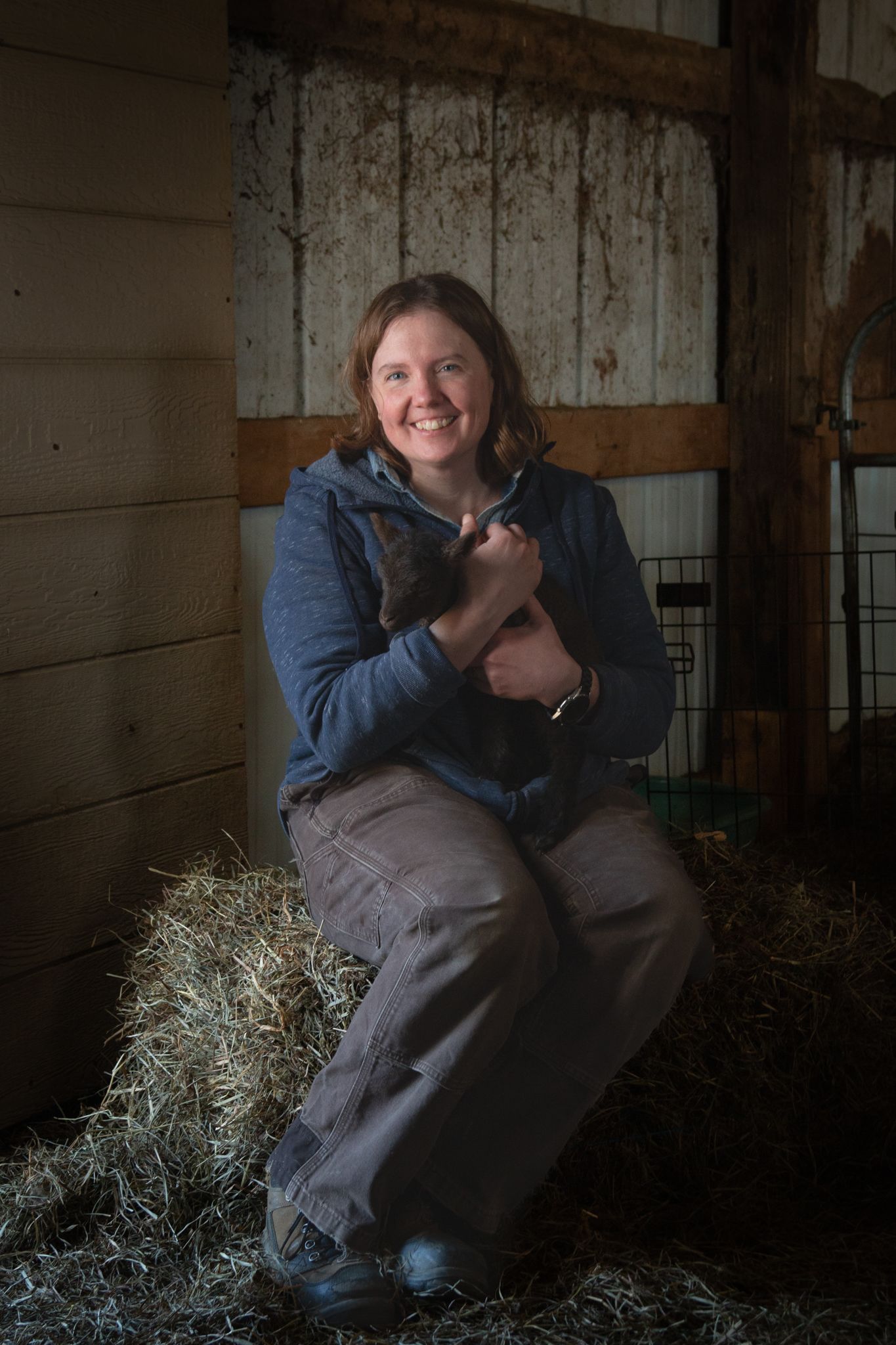
Randy McShepard, co-founder, pictured with colleagues Jasean Rice, assistant farm manager and Marc White, co-founder and farm operations manager (left to right) | Rid-All Green Partnership
In 2009, Cuyahoga County and the city of Cleveland received significant media attention for the foreclosure crisis. It was dubbed “the epicenter” and “ground zero.”
“The projection back then was that 10,000 homes would be demolished as a result of foreclosures," said Randy McShepard, a co-founder of Rid-All Green Partnership. "Turns out that it was actually 18,000 homes. So we started to ask the question — at least me and the think tank that I’m involved with — ‘What are we going to do with all of this vacant land when they knock down all of these homes?’ One of the recommendations I made was that we think about creative ways to renovate and repurpose vacant land—for things like farms.”
McShepard approached two of his childhood friends Damien Forshe and Keymah Durden, and together, they went to the city of Cleveland and asked for two acres of contiguous land.
“[The city] said, we don’t really have much contiguous land, but there is a place that we can have you look at,” McShepard said. “They brought us to our current location, which at that time was known as the ‘Forgotten Triangle’ because it was the most notorious illegal dumping site in the entire city. We found a few empty houses that had squatters living in them. We had burned-out cars, refrigerators. We worked with the county illegal dumping task force and unearthed more than 2,000 tires. We — not withstanding all of that — decided, you know, someone has to start the revolution, the change. We started spending our own money, spending our own sweat equity to get started, and slowly started to build.”
Twelve years later, Rid-All Green Partnership comprises 18 acres, and it serves as an urban farm and community gathering place. It grows fresh vegetables, manufactures compost soil, raises tilapia and runs a community kitchen, where individuals can take cooking and nutrition classes. Rid-All also operates a healthy food restaurant two days a week, and it’s the official tree nursery site for the Cleveland Tree Coalition.
“The neighborhood we reside in is probably 97% African American and has some of the highest incidences of health disparities,” McShepard said. “These individuals from these communities have high incidences of cancer, heart disease, obesity, high blood pressure. The best way to address those — outside of going to see a doctor — is through diet. So we believe so many of those issues can be mitigated if we had opportunities for people to access healthy food and learn to prepare healthy food and consider a plant-based diet.
“When we see people run to our restaurant every Tuesday and Friday — when we’re open — and they’re excited to have meatless tacos, and salads, and fried green tomatoes, vegan polish boys and all these kinds of things, we know that it really can work. People will eat healthy if given the opportunity and the resources to do so. We believe we are saving lives, and I don’t know what’s more important than that.”
In addition to making healthy food accessible, McShepard and his colleagues at Rid-All are focused on the environment and environmental justice.
“We care about things like carbon sequestration,” McShepard said. “The best thing we can do is find ways to draw carbon back down from the atmosphere, and the best way to do that is through natural environments. Not just large 2,000-acre farms, but even small farms, like this one, so the fact that we’re making compost soil, we’re growing produce, we have a tree nursery — all of that will help with carbon reduction, carbon sequestration.”
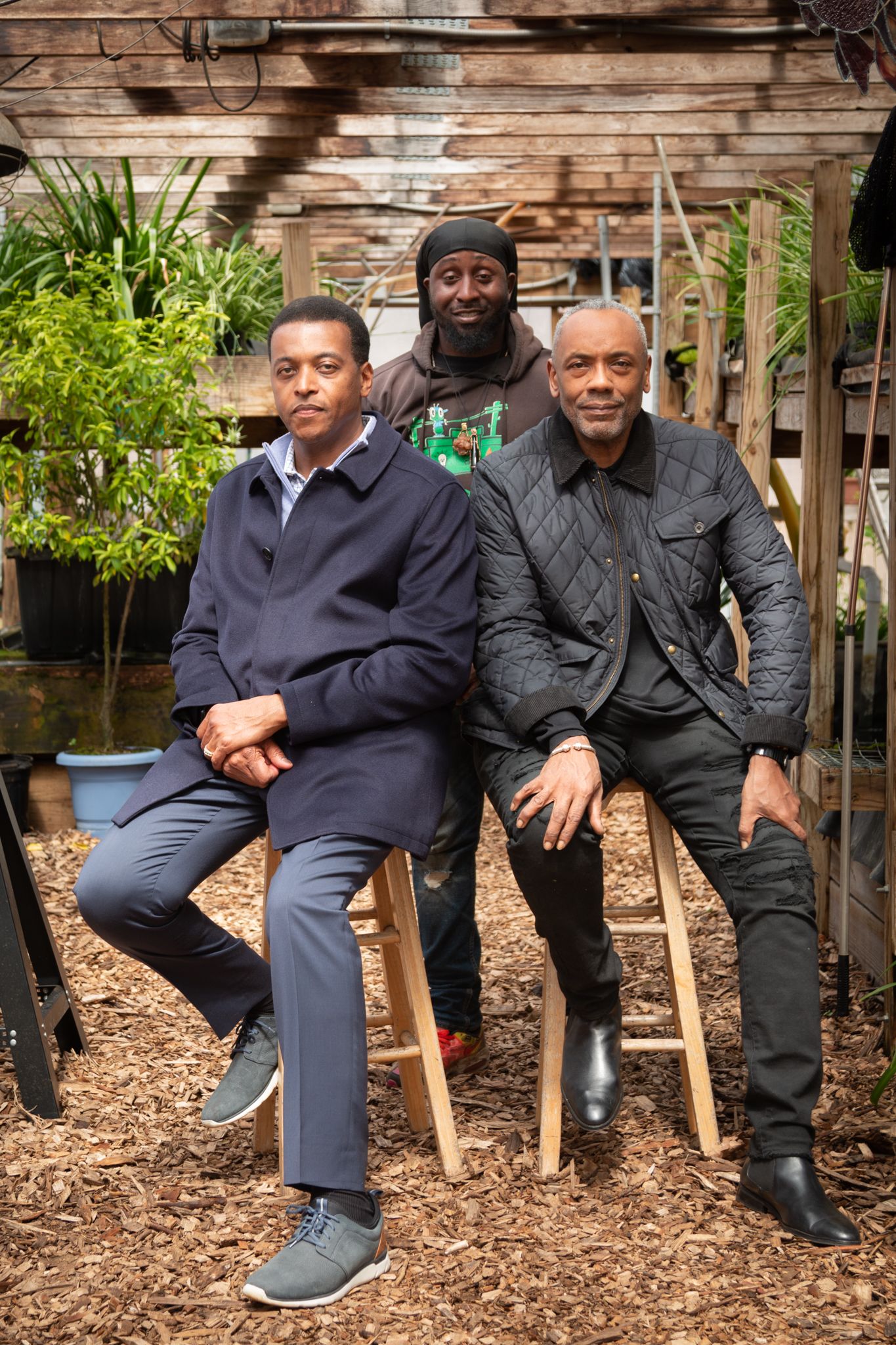
Monica Marshall, lead instructor | Footpath Foundation
Environmentalist Monica Marshall teaches kids about the natural world in her role with Footpath Foundation, a nonprofit that provides outdoor experiences for youth and supplies them with social-emotional learning skills.
Her work involves educating kids at schools and community centers and accompanying them to places around Greater Cleveland where they can experience wildlife, plants and the lessons that nature teaches. The vast majority of her kids are students in the Cleveland Municipal School District or live in one of the Cuyahoga Metropolitan Housing Authority buildings.
“I feel it’s really important for me to teach kids — at this fundamental time— how to be kind to nature, how to have empathy and understand nature in a way that [conveys] we’re all a part of nature — and you’re a part of this, too,” Marshall said. “I really want to show people that this is like medicine out here. If you’re upset, if you’re scared, depressed, anxious, being outside is the best medicine for you.”
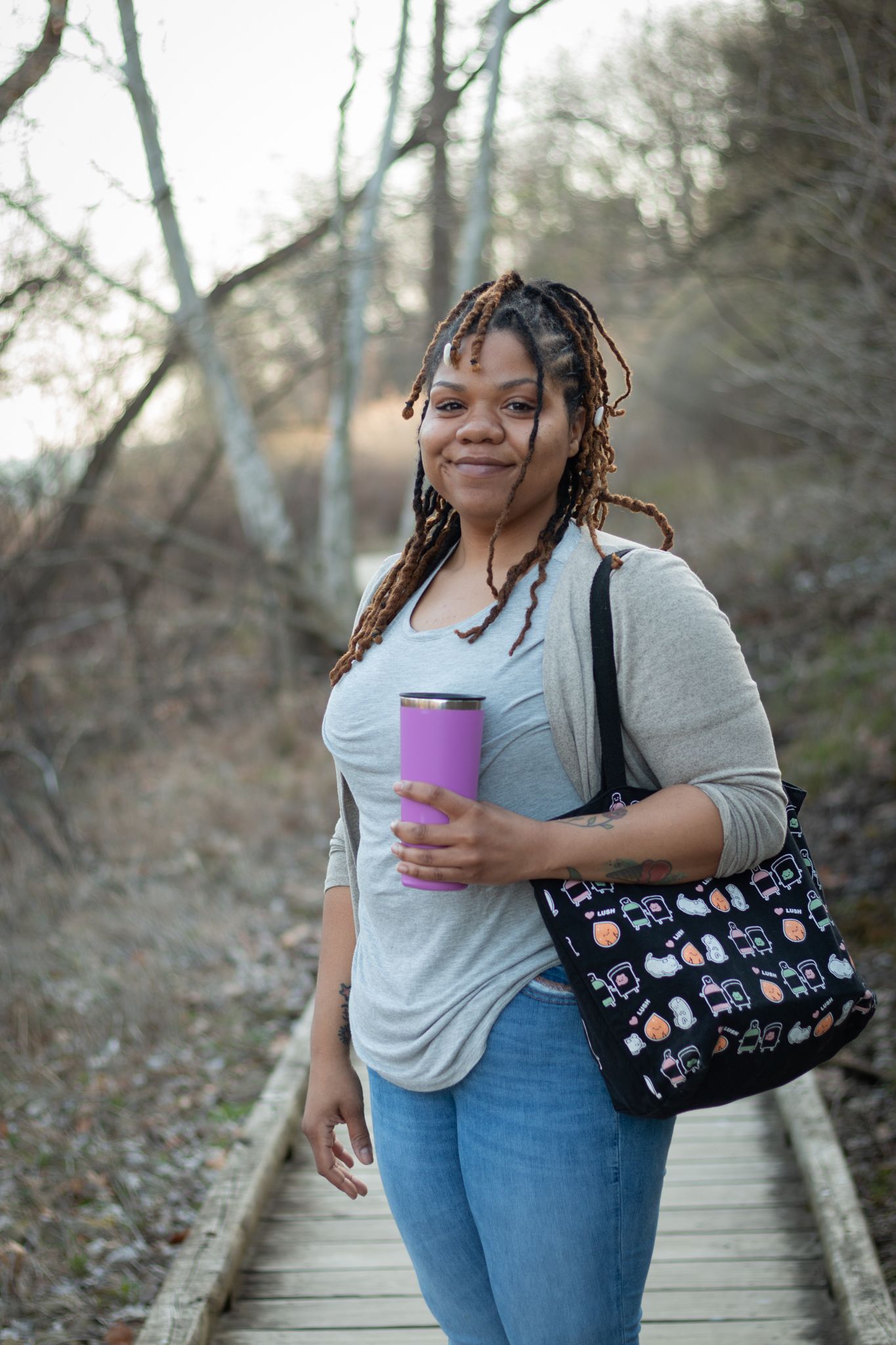
Emily Pek, owner and flower farmer | Frayed Knot Farm
Emily Pek launched Frayed Knot Farm in 2017 and began growing on her smaller-than-one-acre farm in Newbury Township in 2018.
Now in her sixth season growing, she predominately sells cut flowers through Community Supported Agriculture (CSA) subscriptions (weekly bouquets), and to local florists and individuals who desire local flowers at their weddings and events.
Pek does the work because, she said, she can’t see herself doing anything else.
“I just love being close to our environment, nature, our ecosystem, and I can’t imagine not having work that is seasonal and really in tune with what is going on in the outside world.”
She said it’s important to buy locally because — in addition to helping the local economy — it gives people an opportunity to know the person growing their food, their textiles, their flowers.
“We’re so removed from the source of so many things: It’s the same with the food movement or textiles,” Pek said. "When you can meet the producer of something you can ask them questions and you can learn more about what is going into your body or around your home. When you’re removed from that — a lot can happen between [the produce] getting grown and getting to you.”
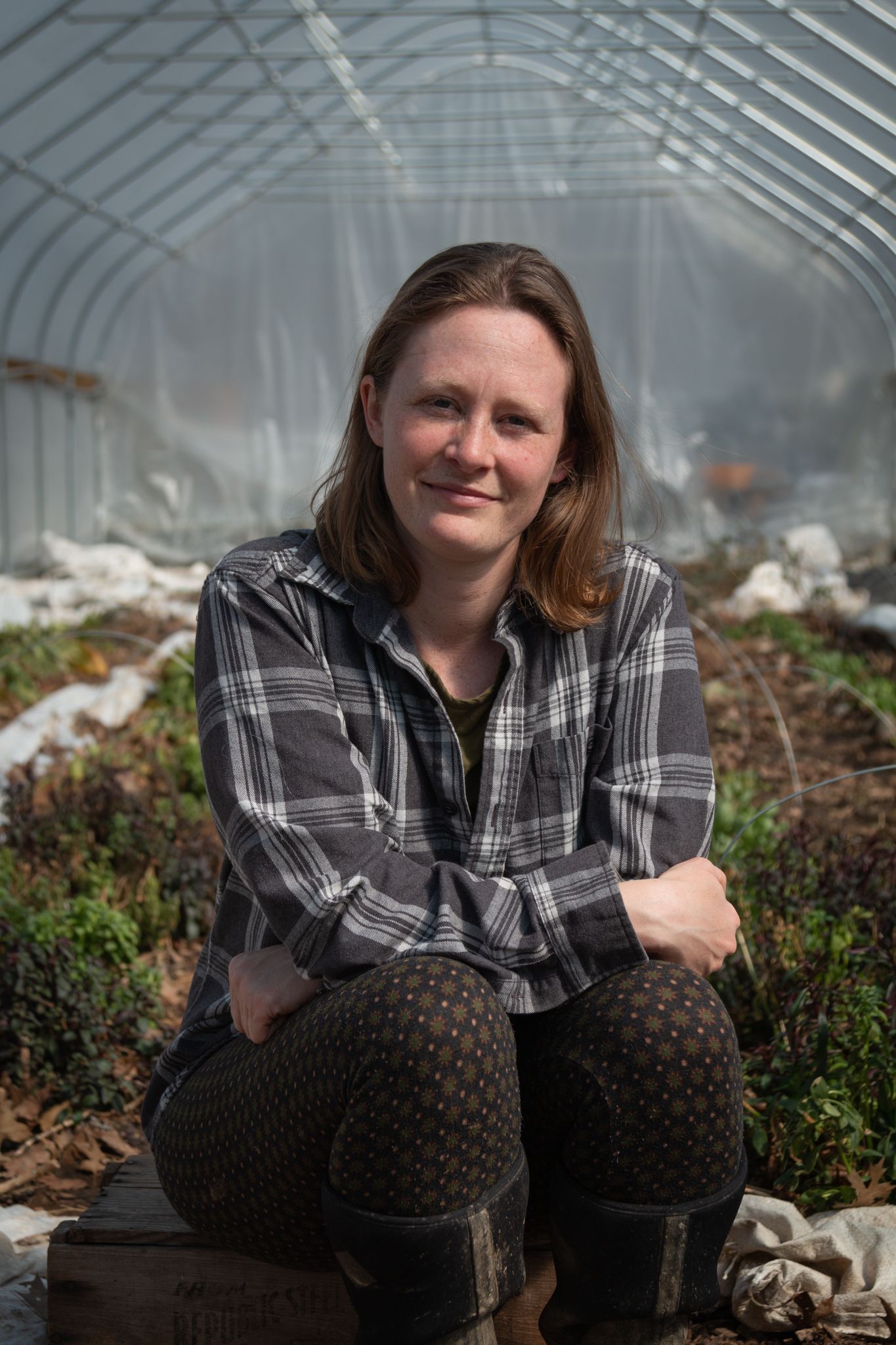
Wesley The Keeper, urban beekeeper and entrepreneur | Akron Honey
Ten years ago, in 2013, Wesley The Keeper bought a vacant lot in Akron’s Highland Square neighborhood and Googled “how to keep bees,” after a trip he and his wife made to Amish country in Berlin, Ohio, where they tasted raw honey on tap. Today, his honey can be found in approximately 50 grocery stores in Ohio, Illinois and Kentucky — as well as in restaurants and coffee shops, locally.
“I didn’t want to do it because I wanted to create a brand or a company,” Wesley said. “I wanted to do it because I wanted to create something for our neighborhood to be proud of — like something for them to brag about.”
He said that while his work does not inherently protect or save honeybees, he uses his business as a platform to discuss what individuals can do to protect honeybees and offers these three suggestions:
“Stop cutting your grass so low all the time,” he said. “When dandelions come up, let them grow. A lot of different pollinators feed off of those. That’s one thing. Number two: Instead of going to a big box store and buying weed killer and spraying it, make your own vinegar and water mixture. You spray it, and it weakens [the weed], and you just pull it right out. And the third one is to be more mindful. And how [do] you start [doing] that? Don’t assume that you’re right. Assume you don’t know and be open to your impact on the world.”
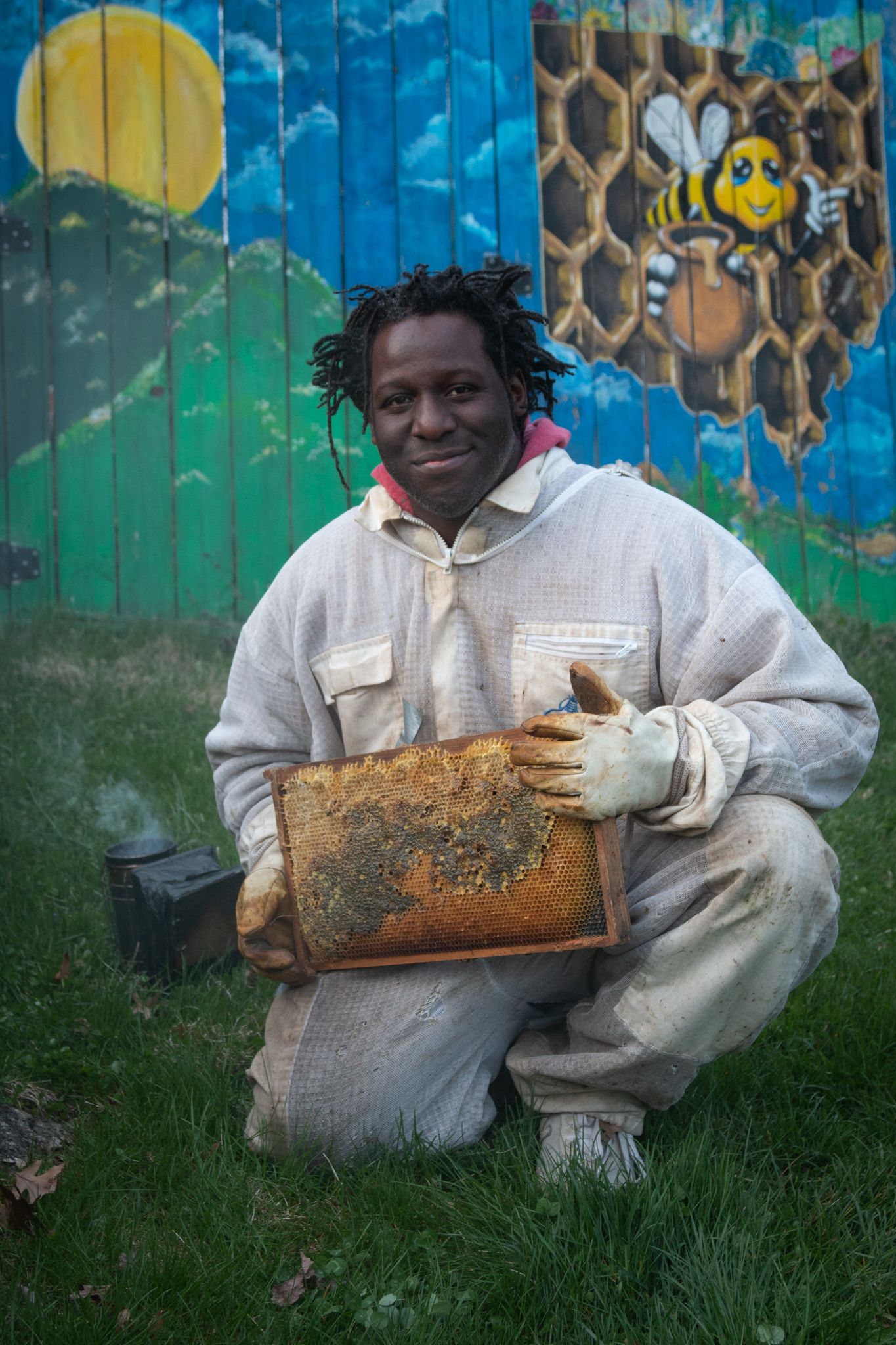
Heather Hansen, commercial hauler (right), pictured with colleague David MacCluskie, commercial hauler and soil production | Rust Belt Riders
Before Heather Hansen drove an 18-wheeler with Rust Belt Riders, a worker-owned cooperative that provides composting services for residences and organizations in the Greater Cleveland area, they worked in the service industry: behind-the-scenes, in a kitchen, in a restaurant, in Downtown Cleveland. They saw firsthand how much food got thrown out, and it bothered them. Their parents introduced them to composting at a young age, and when they learned about Rust Belt Riders, they thought employment there might be a better fit.
“The more I got into it, the more I learned, the longer I worked here, it seemed like the most natural, almost necessary, work for me.” Hansen said. “It’s just a way to give back, a way to protect what I love — so the community, nature, the animals, the air, growing food, gardens. It feels holy.”
Composting is a process that turns food scraps into nutrient-dense soil, which in turn helps plants grow. It’s an alternative to discarding food scraps in the garbage, and ultimately, a landfill.
Food scraps in landfills do not receive oxygen and rot, and rotting food creates and emits methane, a toxic greenhouse gas that warms our planet.
“Things like ‘waste,’ ‘trash,’ are really made up concepts,” Hansen said. “Food scraps is such a beautiful, amazing, way to really get into that. To see the beauty, the colors, the smells, the process, the decomposition — from seeing it as recognizable fruit to sludgy, messy masses, to being soil, and then there’s a plant growing from it. And all of this from something that society deems as gross and smelly and garbage.”
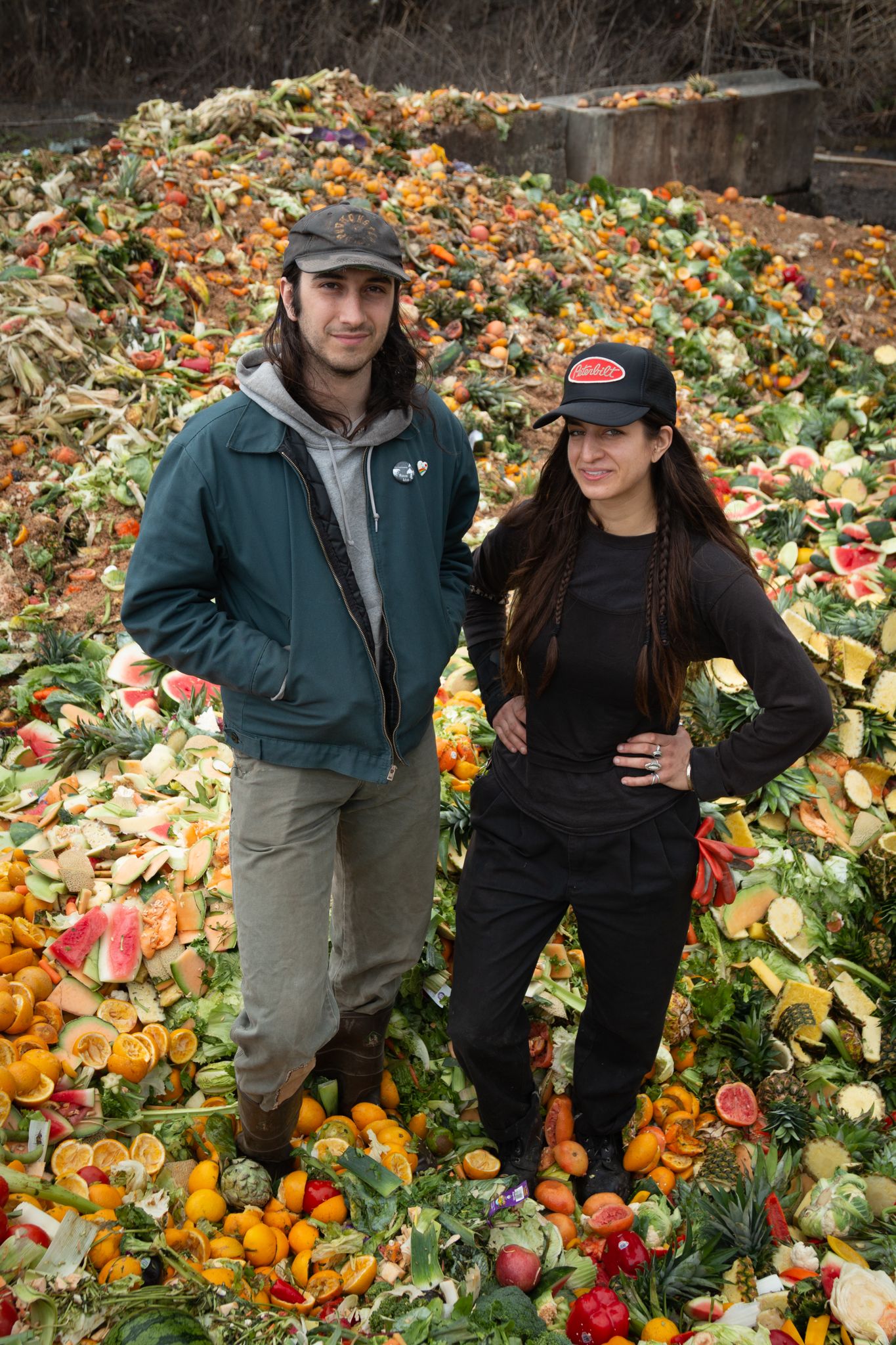
Kim Foreman, CEO | Environmental Health Watch
Kimberly Foreman leads Environmental Health Watch, a nonprofit dedicated to ensuring all people can live in safe, healthy homes. Locally, many people know her and her organization for their dedication to reducing the number of people, especially children, in Cleveland affected by lead poisoning and other health issues, like asthma, that result from living in substandard housing.
“Our work is rooted in spurring systems change through policy, research, and most importantly through intentionally responding to the collective community voice,” Foreman said. “For Environmental Health Watch, every community should be at the table, every voice must be elevated and everyone has to win.”
One aspect of Foreman and her team’s work focuses on indoor air pollution in homes. She says a person’s home should be a place of respite and not make them or their children sick.
“As a community and nation, there should be more access to healthy affordable units that don’t contribute to poor air quality indoors or out,” she said. “Families should not have to choose between health and living in poor housing conditions.”
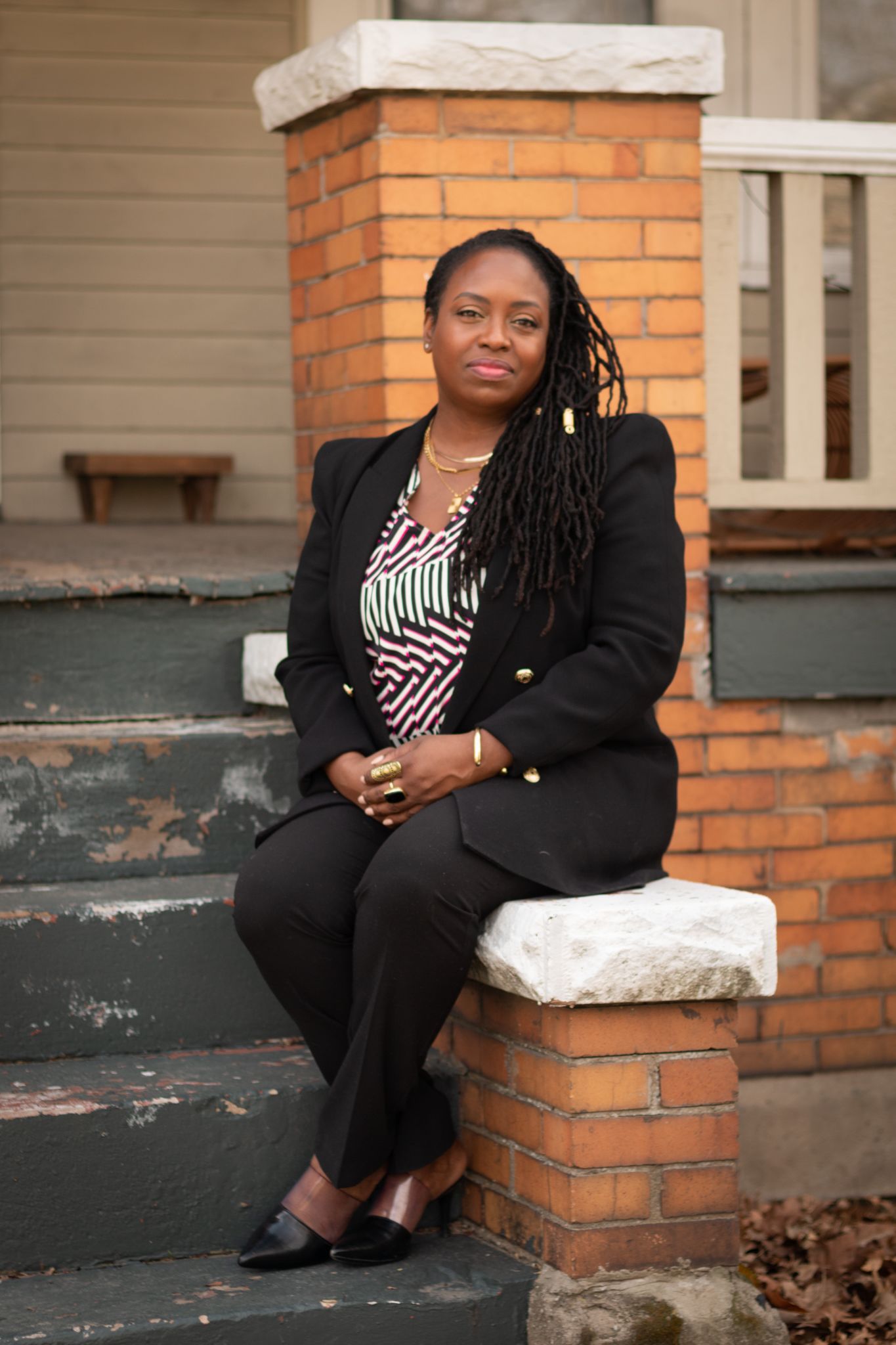
Updated: Monday, April 24, 2023 at 1:23 p.m. - An earlier version of this story incorrectly named Akron Honey as Akron Honey Company.
